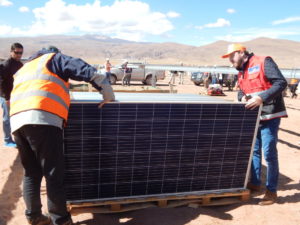With large signs and loud voices, I was one of hundreds of Hong Kong students who joined Greta Thunberg’s “FridaysForFuture” school strikes on 15 March. After speeches at Chater Garden public park, students marched to the Hong Kong government complex in Tamar to call for global action on climate change. According to the organisers, over 1.5 million people participated in over 125 countries.
I only made a firm decision to join the night before the strike. This wasn’t because I’m not serious about climate change and environmental issues, but due to my concerns about the effectiveness of the demonstration.
I feared that we would be shifting the blame onto other people rather than taking the initiative to also carry the burden of environmental action. While we will hopefully continue to catalyse governments to act, the younger generation needs to start setting an example for them as well – school strikes and marches are not enough.
Despite my misgivings, I am incredibly glad to have joined the march. I participated in the hope of making climate change a greater area of concern in Hong Kong. There is still a long way to go, but I think that the movement succeeded in raising awareness. I vividly remember the quizzical looks of onlooking bus passengers and pedestrians as we chanted our way through Admiralty.
A lesson on climate
During the march, I became increasingly aware of how students from international schools dominated the scene, leading me to wonder why those from other schools were barely involved.
At first, I thought that environmental studies were more prevalent in international school curriculums compared to local schools. The International Baccalaureate is used in international schools across the world and does an excellent job of incorporating environmental studies into its syllabus. There is a designated high school course on “Environmental Systems and Sciences”, and students are exposed to environmental issues through other courses too. As an IB student myself, I have been learning about acid rain in chemistry, climate change migration in geography and ecosystems in biology.
The Hong Kong government’s Secondary Education Curriculum Guide also includes environmental education in its syllabus. Local primary school students learn “to show concern” for and “develop a caring attitude” towards the environment. In secondary school they learn “to develop an understanding of” and “describe the impact of human activities on the environment”.
It’s notable that students from local schools were encouraged to form emotional connections with the environment early on, yet hardly any of them could be found voicing their opinions at the climate change march.
It would seem that all students are aware of the urgency of climate change, but it is predominantly the international students who are willing to take action.
The culture in Hong Kong prioritises convenience, cost and comfort, so making lifestyle changes for the sake of environmental protection may lack appeal to some people. Participating in a climate march may involve skipping school, possibly against the wishes of parents.
To encourage more students to take up the cause against climate change may require a change in attitude towards environmental issues. Revolutions and movements have never been created out of convenience, and this one will not be an exception.
The long view
It is shocking that today’s youth are having to speak up against adults. It should be the responsibility of government, not children, to guarantee environmental protection.
Students may lack experience with policymaking, but we are the next generation to inherit the planet so our views on climate change deserve to be recognised and acted upon. And, given the little care and success many of our elders have had in building a sustainable future, it seems that the youth will have to manage the situation.
Student activism has been historically prominent in leading to political change but like the “March for Our Lives” protests calling for stricter gun regulations in the United States, it has fallen to students to take a stand on matters that affect us personally, but which seem out of our control.
As we edge toward climate catastrophe, students will continue to lead calls for climate action. After all, it is the youth who will have to deal with the consequences for the rest of our lives.







